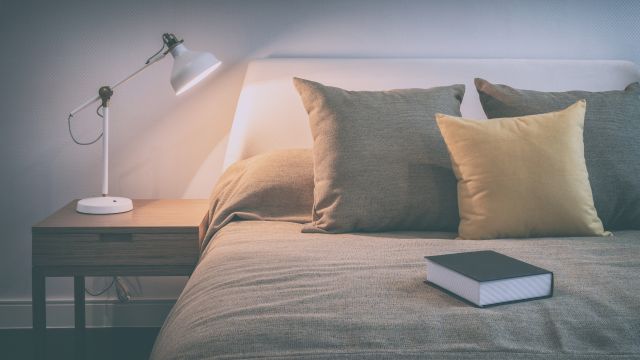You’re in class and the teacher announces a surprise test. You haven’t studied, done homework or even been to class for weeks—and you may or may not be naked. Time to panic. One problem: You’ve been out of school for years or even decades. You wake up with relief. It was just a dream.
Why does your brain do that to you? Researchers still don’t know why people dream, but they do know it’s an important brain activity. It's believed that everyone dreams, and there’s evidence that even people who never remember a single dream do still dream.
Here’s what’s happening to your brain while you're dreaming, and the most compelling theories as to why you dream.
Stages of sleep
“There are four stages of sleep: N1, N2, N3 and REM,” says Michael Yu, MD, a neurologist and sleep medicine expert with TriStar StoneCrest Medical Center in Smyrna, Tennessee.
- N1 is “basically drowsiness, a transition from wakefulness to true sleep,” says Dr. Yu.
- N2 is light sleep, where the brain waves are beginning to slow down.
- N3 is the deep, restorative sleep. “Brain waves slow down even more, and growth hormone is produced,” says Yu. This stage used to be two stages, N3 and N4, until 2007.
- REM is short for rapid eye movement. This is dreamland, though evidence is mounting that dreams also occur during non-REM sleep. The eyes dart around and “the brain becomes very active from an electrophysiologic point of view," says Yu. "It almost resembles wakefulness."
Going through the four (or five) stages of sleep once is called a cycle. “A cycle is typically an hour and a half to two hours,” says Yu. “You go through four to six cycles per night, and spend about 20 to 25 percent in dream sleep.”
Why we dream
Researchers don’t know for sure what purpose dreams play or why we do it, but there are some theories. “In REM sleep, one part of the brain that’s active is the amygdala, which is partly responsible for the fight-or-flight response,” says Yu. “One theory is that dreaming allows us to practice that response without a real threat so that we’re more prepared during waking hours. It’s a potential survival mechanism.”
Another theory, according to Yu, is that dreams promote creativity. “You have all these random thoughts around a particular theme or situation or project you’re working on or that’s coming up,” Yu says. “With dreams you might be able to come up with something you wouldn’t have thought of during waking hours.”
The theory with the most convincing evidence, according to Yu, is memory processing. “This theory says that the importance of dreams has nothing to do with the actual dream imagery,” he explains. “Your brain is processing the memories of the day. It’s discarding the trivial experiences and focusing on the more important details in order to imprint them without all the extraneous noise.” The theory goes that dreams are a byproduct of this memory processing.
Dream recall
Most people have between four and six dreams per night, according to Yu, and it’s uncommon to remember them all. “What makes you remember a dream is when you wake up to full consciousness in REM sleep,” he says. “You usually remember the one closest to when you wake up in the morning. That’s also your longest period of REM sleep.”
Not dreaming at all signifies an interruption of your sleep cycle, says Yu. One common reason is obstructive sleep apnea (OSA). OSA is when your breathing stops during sleep due to narrow or blocked airways. “It interrupts the sleep cycle so that you don’t complete it,” Yu explains. “The brain can’t proceed through the sleep cycle as it should and you have to start over. That’s why people feel tired despite spending adequate time in bed.”
Speaking of adequate time in bed, here are some tips for getting the most out of each night. Follow these for a good night’s sleep.
- Get seven to nine hours of sleep per night.
- Get adequate exercise during the day so that you’re tired at bedtime.
- Find relaxing activities to do before bed, like reading or taking a warm bath.
- Avoid computers, smartphones and TV.
- Avoid caffeine and alcohol in the evenings.
- Try not to eat a large meal for at least two hours before bed.
Don’t worry too much if you can’t remember your dreams; most people forget between 95 and 99 percent of them. Still, if you suspect that your sleep cycle is being interrupted, talk to a sleep specialist.






